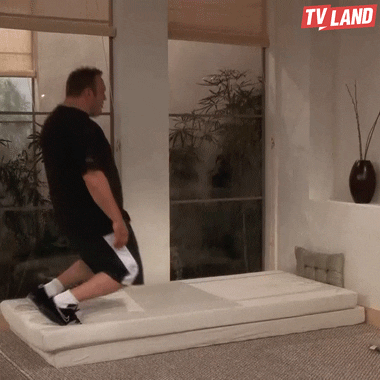With band camps approaching you may be getting a bit nervous about your preparation. While summer has been great for relaxing, we all know that the first full Monday rehearsal is likely to feel like you got knocked on the head by a stray colorguard flag. If you are a student, you will have muscles ache that you did not even know existed and you may even be so tired you fall asleep standing in the shower after rehearsal (spoken from personal experience).
There are some secrets though, that can help you have more energy throughout the long band camp days and recover faster in between rehearsals. We are going beyond the basics of what you have likely already been told: wear sunscreen, drink more water, and exercise. Here are seven tips to help you truly thrive come that first day of band camp.
1. No black shoes!
The only thing hotter than marching outside during the summer is marching outside with black shoes on. I made t
his mistake during drum corps, and my feet blistered every day. I tried to put a band-aid over one blister and the band-aid melted to my foot! A quick switch to lighter colored shoes solved the issue in one day.
2. A hat
The sun will zap your energy during long rehearsals if your head is not properly covered. Any hat is good, but bigger is better. Straw hats and bucket hats will help protect your face and neck from sunburn better than a baseball cap will.
3. Eat Spinach
Not sure what the best meals are for lunch and dinner during band camp? Eat a salad containing spinach. Spinach has a carotenoid called lutein that helps protect your skin from sun exposure (1). Add grilled chicken to give you the protein your muscles will need to recover. The old cartoon character Popeye should’ve been in band!
4. Wear moisture-wicking shirts
The best measure for keeping your core temperature cool while you sweat is bare skin. However, if your dress code does not allow you to be shirtless, moisture-wicking clothing is an alternative. While the research has been conflicting, there is evidence that during longer exercise sessions in the heat, moisture wicking fabrics keep body temperature cooler and keep your skin drier (2).
5. Foam Rolling
Your muscles will be sore at the end of the day. Foam rolling has been shown to decrease muscle tenderness and improve muscle power (3). Doing this at the end of the day is an excellent way to help your body recover.
Your muscles will be sore at the end of the day. Foam rolling has been shown to decrease muscle tenderness and improve muscle power (3). Doing this at the end of the day is an excellent way to help your body recover.
6. Protein
Consuming protein at the end of a long rehearsal day is another way to wake up feeling better the next day. An article in Medicine & Science in Sports & Exercise showed that protein consumed right before sleeping helped stimulate muscle protein synthesis, improving muscle recovery (4). (link to my favorite protein powder here).
7. Sleep
Speaking of sleeping, this may be the most important piece to the puzzle during band camp. Teens and young adults actually need more sleep than the average person with 9-9.5 hours of sleep being optimal. While this is important for your body to recover, it is also crucial for helping your brain process the information learned during the day (5).
References:
1. Carotenoid supplementation reduces erythema in human skin after simulated solar radiation exposure. Lee J, Jiang S, Levine N. Proceedings of the Society for Experimental Biology and Medicine. Society for Experimental Biology and Medicine (New York, N.Y.), 2000, Mar.;223(2):0037-9727.
2. The effects of a moisture-wicking fabric shirt on the physiological and perceptual responses during acute exercise in the heat. The effects of a moisture-wicking fabric shirt on the physiological and perceptual responses during acute exercise in the heat – ScienceDirect. http://www.sciencedirect.com/science/article/pii/S0003687014000489. Accessed July 20, 2017.
3. Pearcey GEP, Bradbury-Squires DJ, Kawamoto J-E, Drinkwater EJ, Behm DG, Button DC. Foam Rolling for Delayed-Onset Muscle Soreness and Recovery of Dynamic Performance Measures. Journal of Athletic Training. 2015;50(1):5-13. doi:10.4085/1062-6050-50.1.01.
4. Res PT, Groen B, Pennings B, et al. Protein Ingestion before Sleep Improves Postexercise Overnight Recovery. Medicine & Science in Sports & Exercise. 2012;44(8):1560-1569. doi:10.1249/mss.0b013e31824cc363.
5. Sleep in Adolescents (13-18 Years). Sleep in Adolescents :: Nationwide Children’s Hospital. http://www.nationwidechildrens.org/sleep-in-adolescents.

